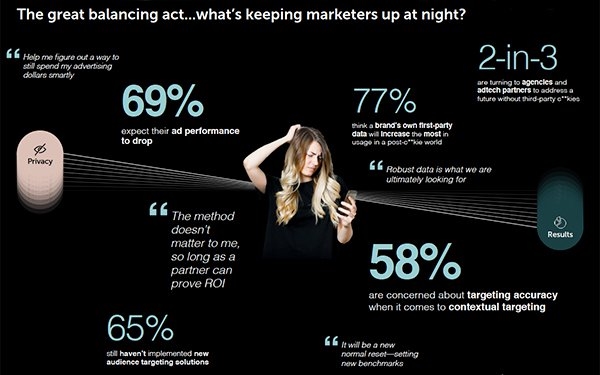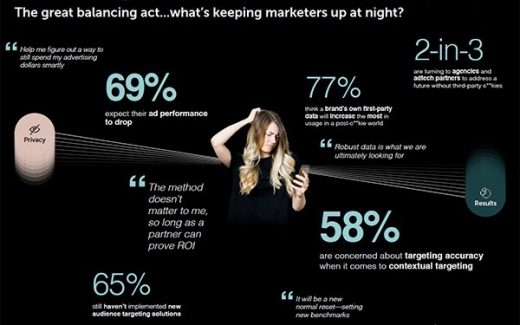Performance Without Cookies Expected To Drop, Marketers Say
Performance Without Cookies Expected To Drop, Marketers Say

Some 69% of marketers expect ad performance to drop without cookies, with 62% concerned about losing the precision of data-driven targeting, according to data released Friday.
“Disruption is any industry’s greatest catalyst for positive change,” according to Captify, which partnered with Advertiser Perceptions to survey 52 brand marketers from their Ad Pros Community.
The study was fielded from May 3 – May 7, 2021, and asked questions to help understand how marketers are preparing for a world post-third-party cookies. These marketers have an annual digital ad spend between $5 million and more than $100 million.
There are a high percentage of brands still waiting for an alternative.
- 65% have yet to implement new audience targeting solutions in place of cookies
- 77% believe the move away from cookies will bring brands’ first-party data increased usage and importance, and 54% think the same for first-party search data
- 54% expect to rely more on search intelligence to build qualified audiences
- 40% plan to turn toward walled gardens as cookies disappear
Marketers face major hurdles when it comes to alternative solutions. Two in three have turned to agencies and ad-tech partners to help them address these barriers and deliver results. Here are some of the major challenges:
- 42% cite that mew measurement methods is a challenge
- 35% say understanding cookieless technologies
- 27% cite lack of clarity on how Google addresses cookies
- 27% cite lack of proof through metrics for cookieless solutions
- 17% cite access to important datasets
More marketers are increasing their reliance on Search Intelligence compared with walled gardens to identify consumer intent and build qualified audiences.
- 58% tie together online and offline data
- 54% have a greater reliance on search intelligence
- 44% use content publishers’ digital advertising and intent data
- 44% rely on AI/machine learning to build segments
- 40% increase their use of cohort or interest-based data
- 40% have a greater use of walled gardens
(8)


